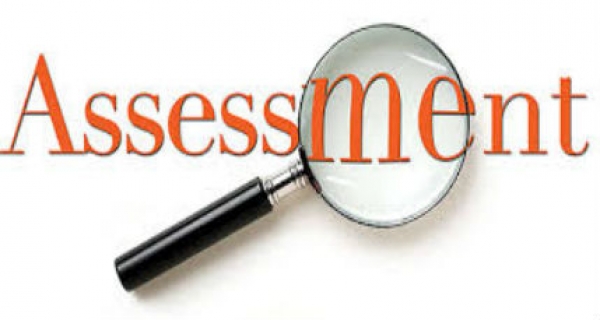Learners, on the one hand, take a dim view of exams, innumerable tests, term papers, etc., and are straining at the leash to escape, as they feel that the educational system will punish and ostracize them if they fail; parents, on the other, attach so much importance to exams and marks that they seem incapable of grasping the true meaning of learning per se. The backwash effect of all this is that teachers end up focusing on the end-product, that is, the final success of their students in terms of grades and performance, rather than on how to make their lesson more constructive so as to help learners learn—not mechanically but consciously, in accordance with their individual needs and inner capacities—and negotiate meaning.
It goes without saying that, no matter how sceptical we might be about the efficacy of the educational system, there are certain points that teachers and learners alike should agree on: the need to assess the students, the teachers and the system itself, along with the need to realise that exams are only one aspect of the learning process. Obviously, exams, tests and term papers are part and parcel of the educational process and effective means of assessing our students’ progress. At the same time, assessing our students’ skills and other patterns can help assess the value and effectiveness of the methods we, as teachers, implement, as well as the appropriateness and suitability of the syllabuses we use and the lesson plans we apply in class. In other words, assessing our students can prove instrumental in assessing ourselves and the system within which teaching and learning take place and to which we are all supposed to “pledge allegiance.”
However, in order for “assessment” to achieve these goals, we have to take certain things into consideration. To put it in a nutshell, it all boils down to our objectives. Are we out to measure or test what a student “knows” in order to give him a grade or are we interested in identifying those problems that call for remedial work? Does the teacher pay more attention to errors and the ways in which these can be eliminated, or does he / she focus on the students’ “strong points”? Is preparation for public or other examinations a terminus ad quem? Is the teacher’s effectiveness amenable to assessment or is there a general feeling that the teacher is to be put on a pedestal and “held in veneration”? And so on.
Admittedly, there is a tendency nowadays to combine many a theory and practice or trend in assessment. For instance, multiple choice questions and cloze tests are more objective ways of evaluating our students’ knowledge and skills, based, as they are, on certain psychological theories. Cloze tests, for example, derive from Gestalt theory, whereby the aim is to examine the students’ knowledge in a more global, holistic way, inasmuch as there are cognitive and affective factors at work. More specifically, students are required to fill in gaps, providing information both from a syntactic as well as pragmatic point of view. Nevertheless, this is a blessing in disguise. Much as they are objective, these exercises become a mechanistic type of examination, constraining students’ freedom and intellectual capacities.
It is evident that testing and assessment—these two inextricably related terms—are beyond mere examinations and mid-term papers. In fact, they constitute major issues that can shed some light on all those factors which may, on the one hand, enhance and, on the other, put paid to the educational process. What should be done to mitigate the “side-effects”? As a rule of thumb, we should always be alert and open to new ideas and perspectives. We should keep a weather eye open, bearing in mind that amelioration is the keynote. Assessment must always involve teachers and students, methods and strategies. Nothing should be taken at face value. A teacher who asserts her- / himself, speaking ex cathedra, throwing his weight about, ends up being a scourge. We need teachers who are open-minded, responsible and considerate towards their students’ needs; teachers who actively participate in the learning process and are not reduced to a “fly-on-the-wall” view. Each student should be treated on his own merits, viewed as an individual whose needs as well as cognitive and emotional background are the main determinants of his progress.
In conclusion, we could say that assessment, controversial though it may be, is certainly an indispensable part of the educational process. We cannot do without it. Yet, we have to improve it—and improving our ways of assessment means improving ourselves and society, in general. No single test or exam paper is a panacea. It is teachers and students that can meet halfway, interact and benefit. Why flinch from engaging in education? Exams are not that bad, after all!
Source: Dr. Dimitris Thanasoulas







